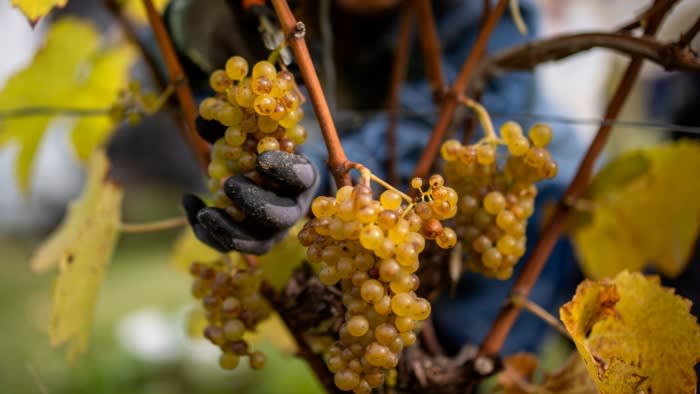Unlock the Editor’s Digest for free
Roula Khalaf, Editor of the FT, selects her favourite stories in this weekly newsletter.
Duckhorn Portfolio would not consider $11 a heady price for a bottle of its luxury wine. But for a price per share of its company, it represents the height of decadence. The Napa Valley headquartered vintner this week sold itself for $11.10 a share, more than double its previous trading price and an implied enterprise value of $2bn.
Duckhorn had gone public at $15 per share in 2021. But a recent big acquisition, youth apathy towards wine, and a small cap float collectively meant that Wall Street turned sour. Its buyer, the private equity firm Butterfly Equity, is taking a big swig with some unusual backers.
Butterfly is not relying on a traditional commercial banking syndicate nor a private credit asset manager. Rather, the committed transaction debt is to come from the US Farm Credit System, which is composed of a set of agriculture co-operative banks that are scattered across America.
The unusual funding group includes such names as American AgCredit, Compeer Financial, Farm Credit Services of America and Farm Credit Mid-America. The Farm Credit System is a so-called government sponsored enterprise — similar to Fannie Mae and Freddie Mac — whose bonds avoid state and local taxation. Take that JPMorgan and Apollo.
The farm credit funding parent corporation has more than $400bn of debt securities outstanding that supports its lending. As for the Duckhorn deal, the leverage and other financing details were not initially disclosed but it is safe to assume that the US Farm Credit System is not particularly experienced in public company M&A.
Duckhorn typically sells wine bottles for between $20 and $200, a range known as “luxury”. It was founded in 1976 by a husband and wife team. Its two largest current owners are the private equity group TSG and Brown-Forman, the spirits conglomerate which sold its Sonoma-Cutrer Vineyards for $400mn to Duckhorn last year.
Since that transaction, Duckhorn has faced stagnating sales amid an overall dip in wine sales. Younger Americans are either eschewing alcoholic beverages generally or prefer other types of tipples.
Expect Butterfly, which is paying nearly 13 times ebitda, to slash costs and manage the business for cash flow. The worst case scenario contemplated conjures a remarkable possibility: a bank owned by farmers and ranchers foreclosing on a Northern California wine company.


